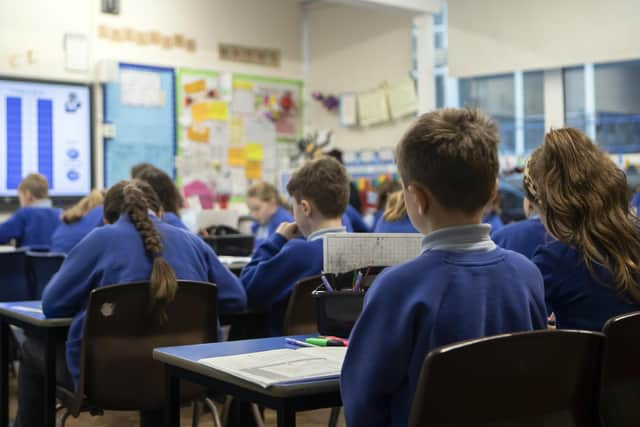Scottish head teachers warn policy of mainstreaming ASN pupils has 'not been entirely successful'
Secondary school head teachers have warned that Scotland’s policy of mainstreaming pupils has “not been entirely successful” and is often leading to a “poorer” education for young people.
School Leaders Scotland (SLS) said it remained committed to the principles behind the policy of inclusion, and that they were supported “almost universally” by staff, but that it was a “promise that we can’t keep due to resourcing levels”.
Advertisement
Hide AdAdvertisement
Hide AdAnd the body raised concerns that increasing numbers of children with additional support needs (ASN) were being placed in mainstream schools even when it was not deemed appropriate, because there were no spaces left in specialist facilities.


The intervention comes amid reports in Edinburgh that a “significant number” of ASN youngsters are now being refused places in enhanced support learning hubs within schools.
In Scotland, most children are educated in mainstream schools, following a move away from the previous practice of segregating youngsters with disabilities or differences from their peers. Ministers say the policy creates an increasingly “inclusive, empathetic and more just society”.
However, about a third of youngsters in Scottish state schools now have ASN, after the number almost doubled in the past decade.
Amid evidence of teachers struggling to cope with the huge range of needs they encounter, Holyrood’s education committee is holding an inquiry into ASN provision.
In written evidence, SLS said: “From the perspective of a members in secondary schools the presumption of mainstreaming has not been entirely successful. The principle of the policy is hard to argue against. However, the implementation is problematic if not resourced. Unfortunately, it also means that we are held to policy which is, more often than not, unattainable under current resourcing/structures/constraints.”
SLS, which represents secondary school head teachers, deputes and principal teachers, said school leaders were often left to try and make provision work by “being creative”.
It also warned that many youngsters find the social side of mainstream school “incredibly difficult and anxiety inducing”, and there is evidence an increasing number of such learners are “school refusers”.
Advertisement
Hide AdAdvertisement
Hide AdThe letter said: “In this respect, the presumption of mainstream has led to poorer experience of learning in school both for learners with ASN and those mainstream pupils whose learning is being disrupted by behaviours that are signifying distress and difficulty in accessing the learning.”
SLS also said there had been an increase in the number of young people being placed in a mainstream school when it was not deemed appropriate, due to there being “no more spaces” within the specialist schools
"Not only is this highly distressing in many cases for the families and young people, but it also has an immense impact on mainstream schools and their resources,” the organisation said.
A Scottish Government spokesperson said: “While it is for local councils to determine the most appropriate educational provision, the Scottish Government is committed to improving the experiences and outcomes for young people with additional support needs, and spending on additional support for learning reached a record high of £830 million in the most recently published figures.”
He added the Government continued to invest £15m per year to help schools respond to the individual needs young people, and also provides more than £11m to directly support pupils with complex ASN.
Comments
Want to join the conversation? Please or to comment on this article.
